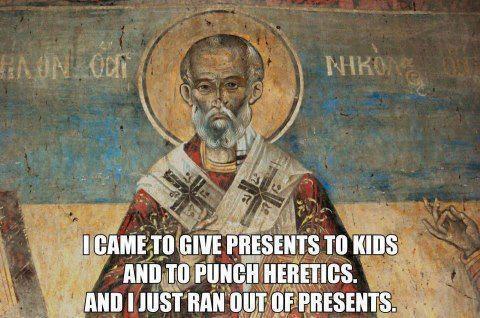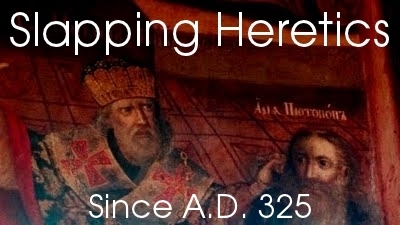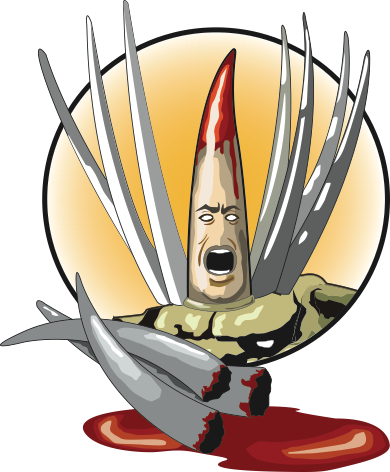



Papal Rome Beginnings
We start to see Papal Rome growing early on in the chapter.
Daniel 11:23
And after
Some of God's People make
the league
Or join together with Rome
he
Rome
shall work deceitfully: for he
Rome
shall come up, and shall become strong with a small people
The Little Horn - Papacy.
To show that the Papacy was already getting started even in Paul's day.
Let no man deceive you by any means: for that day shall not come, except there come a falling away first, and that man of sin be revealed, the son of perdition; Who opposeth and exalteth himself above all that is called God, or that is worshipped; so that he as God sitteth in the temple of God, shewing himself that he is God. Remember ye not, that, when I was yet with you, I told you these things? And now ye know what withholdeth that he might be revealed in his time. For the mystery of iniquity doth already work: only he who now letteth will let, until he be taken out of the way. And then shall that Wicked be revealed, whom the Lord shall consume with the spirit of his mouth, and shall destroy with the brightness of his coming: (2 Thessalonians 2:3)
Constantine (born c. 280 - died 337 A.D.) united or joined Christianity with paganism and lifted Christianity up in the eyes of the pagan world. The result was the clothing of paganism in Christian garments. - Ulrike Unruh

Another league made at that time was the Nicene Creed. |
325AD
But those who say: 'There was a time when he was not;' and 'He was not before he was made;' and 'He was made out of nothing,' or 'He is of another substance' or 'essence,' or 'The Son of God is created,' or 'changeable,' or 'alterable'--they are condemned by the holy catholic and apostolic Church. - Nicene Creed
The Trinity and Sunday Worship are the two main things that worship the Beast.
Neither the Trinity nor a command to keep Sunday holy is found in the Bible.
The Nicene Creed destroys God giving up his Son to die for us.
The church I belong to now who used to be Non Trinitarians have accepted the Trinity and makes it out that there are three God's acting out a certain role as Father, Son, and Holy Ghost.
The Bible is clear:
For God so loved the world, that he gave his only begotten Son, that whosoever believeth in him should not perish, but have everlasting life. For God sent not his Son into the world to condemn the world; but that the world through him might be saved. (John 3:16-17)
When did Jesus become the Son Of God?
Saying, What think ye of Christ? whose son is he?
They say unto him, The Son of David.
He saith unto them, How then doth David in spirit call him Lord, saying, The LORD said unto my Lord, Sit thou on my right hand, till I make thine enemies thy footstool?
If David then call him Lord, how is he his son?
(Matthew 22:42-45)
I'm going to ask the question again.
What think ye of Christ? whose son is he?
Was he a son before David or after David?
Who hath ascended up into heaven, or descended? who hath gathered the wind in his fists? who hath bound the waters in a garment? who hath established all the ends of the earth? what is his name, and what is his son's name, if thou canst tell? (Proverbs 30:4)
If God were your Father, ye would love me: for I proceeded forth and came from God; neither came I of myself, but he sent me. - (John 8:42)
Say ye of him, whom the Father hath sanctified, and sent into the world, Thou blasphemest; because I said, I am the Son of God? - (John 10:36)
Before the mountains were settled, before the hills was I brought forth: While as yet he had not made the earth, nor the fields, nor the highest part of the dust of the world. When he prepared the heavens, I was there: when he set a compass upon the face of the depth: When he established the clouds above: when he strengthened the fountains of the deep: When he gave to the sea his decree, that the waters should not pass his commandment: when he appointed the foundations of the earth: Then I was by him, as one brought up with him: and I was daily his delight, rejoicing always before him; - (Proverbs 8:25)
I think there is enough evidence to say Jesus is God's son, born in Heaven, brought up with his Father and then sent to this world to save us.
Here we might mention the Trinity, which does away the personality of God, and of his Son Jesus Christ" - (James White, December 11, 1855, Review & Herald, vol. 7, no. 11, page 85, par. 16)
Remember the Nicene Creed that your a Heretic if you say this about Jesus: "There was a time when he was not"
The way spiritualizers have disposed of or denied the only Lord God and our Lord Jesus Christ is first using the old unscriptural Trinitarian creed, that Jesus Christ is the eternal God, though they have not one passage to support it, while we have plain scripture testimony in abundance that he is the Son of the eternal God." - (James White, January 24, 1846, The Day Star)
Daniel 11:24 He
Rome who is now uniting with the Christian Bishops
shall enter peaceably even upon the fattest places of the province
eastern Rome (since the west is being invaded)
; and he
Rome
shall do that which his fathers have not done
mix Christianity with Paganism
, nor his fathers' fathers; he
Rome
shall scatter among them
Rome + Papacy/Bishops
the prey, and spoil, and riches: yea, and he
Rome
shall forecast his devices against the strong holds, even for a time.
- Enter peaceably under the guise of being Christian.
-
Daniel 8:25 - By peace shall destroy many.
The Roman governor of Antioch ruled over Syria, the Roman territory that included Palestine. Christians were first called that in Antioch, and from that city's early Christian community, Paul's Gentile mission began and continued. For first-century Christians, Antioch was much more important than Alexandria. The focus of theological brilliance and creativity shifted to the latter city in the second and third centuries. Antioch also looked to the new imperial city of Constantinople--the "new Rome"--as a place to regain influence and power. Constantinople had no great ancient heritage and its Christian church was fairly new and relatively weak until Constantine began inviting christian leaders there in the fourth century. In a sense, it represented a "mission field" for other churches--not so much in terms of evangelism as in the terms of a power vacuum to be filled. It sounds crude when put this way, but there can be no getting around the fact that both Antioch and Alexandria looked hungrily to Constantinople and sought to have "favorite sons" rise to high positions as chaplains, presbyters, deacons and even as bishop--patriarch of Constantinople--in order to enhance their own city's reputation and influence and in order that their own distinctive brand of theology might be promoted. And their own brands of theology differed significantly. (Roger E. Olson - The Story Of Christian Theology - Chapter 13 - pg 202)
-
- He shall scatter among them Rome + Papacy/Bishops the prey, and spoil, and riches
- Constantinople the New Rome soon became a rival to Old Rome in splendor and riches.
Many of the riches were moved from the city of Rome and other strongholds to Constantinople.
The other strongholds at that time that were competing for power and glory by Rome were Antioch and Alexandria.
There was always theological fighting going on between the two.
I think sometimes they just took opposite ideas just to gain favor with the ruling Emperor, and other Bishops, specially of Constantinople.
Here is a video on another controversy you had between the two sides:
His (Rome's) devices have mostly to do with the mix of Christianity with Paganism and bringing people into this new fold called Christianity.
A time in the Bible is 360 years. (Not sure what you would say those years are.)
But eastern Rome would soon be competing with Western Rome again and much of that power and glory went back to the west.
See more this page: Emperor Constantine Was the First Pope!